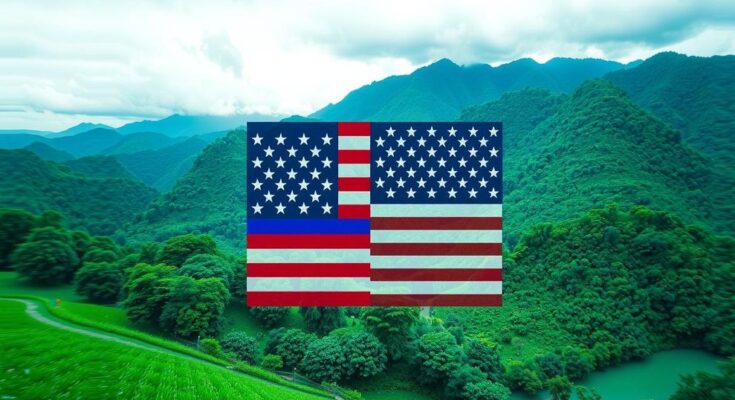As Venezuelan President Nicolas Maduro begins his third term, several Americans remain imprisoned in Venezuela, complicating U.S. diplomatic efforts. David Estrella, among those detained, has not been heard from since September. Trump’s administration faces challenges in addressing these detentions while formulating a new foreign policy, as previous punitive measures have not succeeded. Experts suggest a pragmatic approach toward engagement with Maduro may be necessary.
On Friday, Venezuelan President Nicolas Maduro will begin his third term while many government opponents remain detained in Venezuela’s overcrowded prisons, including up to ten Americans. David Estrella, one of those Americans, has not been heard from since September, when he traveled from Colombia to Venezuela carrying gifts for friends. His ex-wife, Margarita, expresses her distress over not knowing his whereabouts, stating, “It’s like mourning someone in life.”
The specifics of the detentions of Estrella and other Americans remain largely unclear. Many lack legal representation and have limited communication with their families, raising fears that they may face torture, as previously reported with other American detainees. The State Department has not labeled any of them as wrongfully detained, complicating the efforts of their families to secure their release amidst the absence of U.S. diplomatic presence in Venezuela.
The situation presents a delicate challenge for President-elect Donald Trump as he returns to the White House on January 20. His administration has already selected key figures associated with the previous “maximum pressure” strategy aimed at overthrowing Maduro. This includes Senator Marco Rubio for Secretary of State and Mauricio Claver-Carone as special envoy for Latin America.
Nonetheless, the effectiveness of previous policies has come under scrutiny as Maduro retains military support despite international recognition for his rival, Edmundo Gonzalez. Experts suggest a re-evaluation of strategy is warranted since harsh sanctions have inadvertently strengthened adversarial nations like China and Russia in the energy sector. Additionally, Trump’s promise of mass deportations relies on Maduro’s agreement to accept migrants, which has yet to materialize under current negotiations.
Brian Fonseca, a national security analyst, asserts that a repeated approach is ill-advised, proposing that engagement with Maduro should resemble the pragmatic dealings the U.S. maintains with countries like Saudi Arabia, despite human rights violations. Fonseca emphasized the need for practical compromises that could ultimately foster human rights improvements in Venezuela.
Maduro congratulated Trump after the latter’s electoral victory, signaling a desire for improved U.S.-Venezuela relations. Notably, Venezuela’s state-owned oil company contributed to Trump’s inauguration in 2016, although Trump has maintained a politically aggressive stance against Maduro. Analysts believe that while American detentions pose a challenge, they are not an insurmountable barrier to improving bilateral relations.
Recent events indicate that Maduro may not be committed to avoiding the arrest of additional Americans following a prisoner exchange that secured commitments regarding future detentions. Reports suggest a concerted pattern where Maduro targets individuals from nations opposed to his leadership, including those from Argentina, Ecuador, Spain, and others.
On Tuesday, Maduro announced further U.S. arrests as part of a purported plot involving mercenaries from Colombia and Ukraine. He asserted that they would confess in due course. While officials confirm the names of several American detainees, there remains no comprehensive disclosure from the State Department. One reported detainee, Navy SEAL Wilbert Castaneda, is described by his family as having traveled to Venezuela for personal reasons, although he has been implicated in alleged plots against Maduro.
David Estrella was reported to be involved in a conspiracy to assassinate Maduro, according to Venezuelan officials, though families state the accused have never met. Estrella, who was employed as an auditor before relocating to Ecuador, had hoped to enjoy a fulfilling retirement. “He was always talking about how he was looking forward to retiring and enjoying the rest of his life,” reflected his former spouse, Margarita Estrella.
In summary, the continued detention of Americans in Venezuela poses significant challenges for the incoming Trump administration. With complicated diplomatic relations and a questionable approach towards engaging Maduro, the administration will need to adopt a strategic stance to navigate the existing complexities. The plight of detainees underscores the broader humanitarian situations unfolding in Venezuela, requiring urgent international attention and proactive measures from the U.S. government.
Original Source: www.usnews.com




